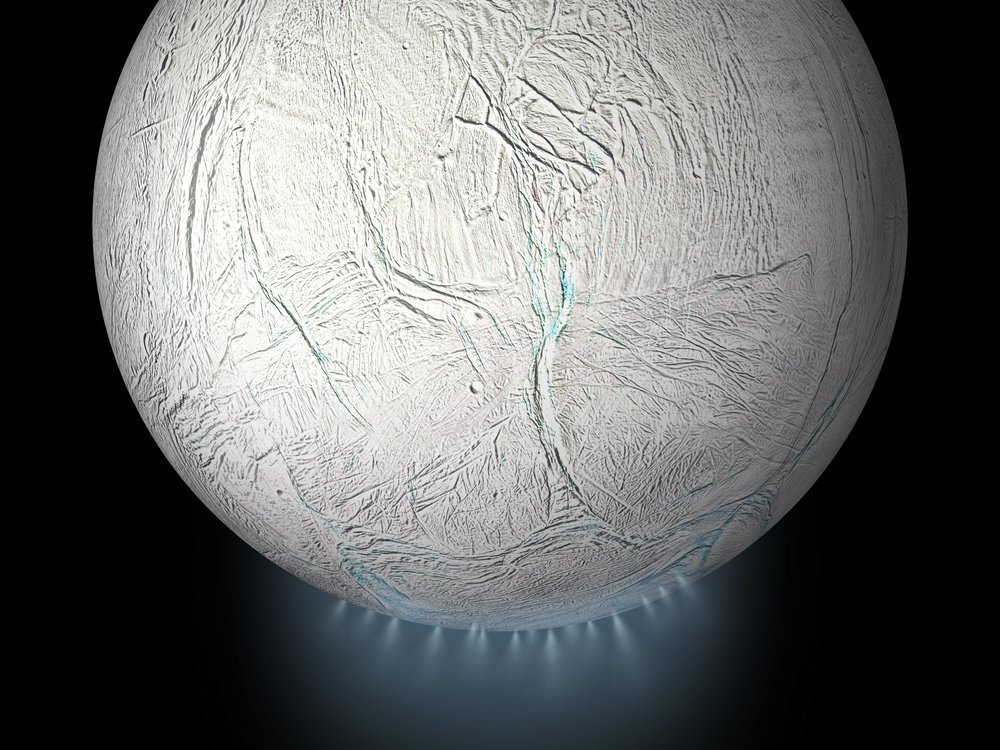A large amount of dissolved phosphorus may be present in the ocean of Saturn’s moon Enceladus. It is a necessary element for the construction of DNA and RNA. So, its presence increases the chances of finding life.

Phosphorus is almost absent in the ocean of Enceladus
On Saturn’s moon Enceladus, there is an ocean under the icy crust. When the Cassini probe explored the system of the giant planet, it was able to see liquid water that was spewing into space due to cracks. This allowed many scientists to hope that life could exist on this celestial body.
However, the same samples called this statement into question. In addition to water, there were a lot of organic substances in them, for example ammonia, but phosphorus was completely absent. This element in the form of phosphates is part of DNA and RNA, so its absence can automatically mean the absence of life itself.
New geochemical model of Enceladus
Scientists from the Southwest Research Institute in the USA decided to find out whether it could be that phosphorus in the samples from Enceladus was simply not noticed. They collected all the data on the chemical composition of water from the satellite collected by Cassini, combined them with models of the internal structure of the planet and reproduced the thermodynamic and kinetic situation in its ocean.
Simply put, they built a model of how the flows of various substances should move in it and interact with each other. They came to the conclusion that phosphorus on Enceladus should still be in the form of orthophosphates. They easily dissolve in water and are often used on Earth as acidity regulators in beverages.
Scientists are sure that Cassini’s research could simply not notice these substances. Therefore, we need to launch a new mission to Enceladus. It is quite possible that it will find not only phosphorus there, but also living organisms.
According to phys.org
Follow us on Twitter to get the most interesting space news in time
https://twitter.com/ust_magazine
